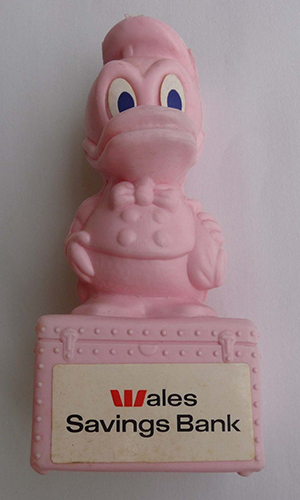You can bank on the wails – just ask the tellers
EDITORIAL >> Investigating poor behaviour and the predatory profit culture of the banks doesn’t need to wait for a Royal Commission – authorities should start now by asking ‘the tellers’ what banking practices make them feel ‘uncomfortable’.
THERE used to be a catchcry for the old Bank of New South Wales: “you can bank on the Wales”.
Of course Australia’s first bank, the Bank of New South Wales is no more.
Today, it is Westpac … which stands for, vaguely, the big bank of the Western Pacific region, as explained eloquently and expensively by brand management gurus way back in 1982. Those in the know kept the ‘W’ from ‘Wales’ and stylised it a bit as a logo – but soon the wails began.
Back in the days of banking on the Wales, it was all about over-the-counter customer service and business leaders getting to know their bank managers – and vice versa – in order for orderly, safe and profitable bank-customer relationships to ensue. Local knowledge and local relationships were the key to what ensued (and probably the key to who were and were not sued). 
It was personalised banking, in a way that is rather different from the understanding of ‘personalised’ digital banking today. Face-to-face contact with a bank has become rare, by design, in this online age.
Australian bankers were a respected and protected species, especially in the orbit of the Big Four. Tellers told you straight. Bank managers actually managed their banks and their key customers.
ATMs and CFDs and LVRs and ‘financial instruments’ and online banking and ‘customer relationship managers’ and ‘business banking specialists’ and ‘financial advisors’ and ‘vertical customer offerings’… were banking ‘innovations’ designed to improve the customer experience and relationship. The only acronym gone forever was the IOU.
SAVINGS FACE
Fast forward to today, where the banking sector is probably an even more protected species than ever – witness the Australian Government’s willingness to guarantee the big banks’ loans and deposits during the Global Financial Crisis with public money – and stories like those on page 4 of this edition bear witness to heavy decline in public ‘respect’.
Most telling, perhaps, are the ‘tellers’. The banking staff who are experiencing a creeping crisis of confidence. But they cannot ‘tell’.
They, on the front line of customer service, bear the brunt of this loss of public and small business confidence in their banks ‘doing the right thing’.
They are the ones being ‘incentivised’ and – in many cases – cajoled to ‘sell’ and ‘upsell’ customers into other ‘services’ offered by the banks. Insurance. Travel money. Superannuation. Share trading. Debtor finance. Offset accounts. Special credit cards … reverse mortgages to little old ladies so far miraculously unencumbered by household debt …
The bank front-liners are the ones who know the ‘sneaky’ costs and charges embedded in so many of those bank-brand products. They see the subtle changes made to small-print product disclosure statements (PDSs) that usually work for the bank’s profitability and often directly against a customer’s best interests.
How can a bank customer service person explain the downside of a few key lines in a PDS, to a customer, at the same time as they are being driven and paid by the bank to engage and refer that customer up the line?
How could a bank customer service specialist explain to a small business person how the points they are earning, and the interest-free period on their loyalty credit cards, are being counterbalanced by fees and ever-changing definitions of what, precisely, is treated as a cash advance (that attracts 20-plus percent interest immediately)?
It is going to become even harder for banking staff to hold their heads up high as the bad behaviour of the once-trusted brand they work for is opened up by round after round of ASIC and ACCC investigations. Forget the issues around banking behaviour during the GFC and crises like the Storm Financial failure, the daily chicanery at customers’ expense that is coming through in these investigations will be far more profound.
Recent talk of an expensive Royal Commission into Australian banking culture would be like kicking a result into the never-never. How many customers beset by bad banking behaviour – witness the Commonwealth Bank insurance payout delays to the terminally ill, exposed recently – are going to last long enough, financially or physically, to see justice? That’s the game.
In fact, all authorities like ASIC and the ACCC need to do is ask the tellers, in confidence. What have they seen their own banks do that makes them feel uncomfortable?
These conflicted tellers will tell, in confidence, just as long as they believe they are protected. Set up a Parliamentary committee, use the powers of ASIC, APRA and the ACCC and be efficient and timely in resolving these issues.
Watch how quickly things change in banking behaviour when these core issues are directed back up the line from whence they came – and where they are truly to blame.
Do tell. Do Australia a favour.
ends

 How to resolve AdBlock issue?
How to resolve AdBlock issue?